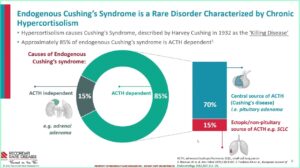NEW YORK (Reuters Health) – Type 2 diabetics treated with rosiglitazone are at increased risk of heart failure events, researchers report in the January 29th online issue of the European Heart Journal.
The elderly and patients with hypertension, microalbuminuria/proteinuria, or higher body mass were at particularly higher risk, they add.
The findings are from the RECORD trial, in which 4447 type 2 diabetics on monotherapy with either metformin or sulfonylurea were randomized either to add rosiglitazone (n = 2220) or to take a combination of metformin and sulfonylurea (n = 2227). Patients were followed for a mean of 5.5 years.
The risk of overall cardiovascular mortality or of morbidity was not increased in the rosiglitazone group, according to lead author Dr. Michel Komajda, of Universite Pierre et Marie Curie Paris, France, and colleagues. In fact, there were fewer cardiovascular deaths in the rosiglitazone group than in the control group (60 versus 71).
On the other hand, there were 61 heart failure events (hospitalization or death) in the rosiglitazone group vs 29 in the control group, which translated to an estimated excess event rate of 2.6 per 1000 person-years and a doubling of the risk for these events (hazard ratio = 2.10, p = 0.0010).
In addition, there was an excess in heart failure deaths in the rosiglitazone group compared to the active control group (10 versus 2). Four of the 10 HF deaths in the rosiglitazone group were first heart failure events.
Duration of HF hospitalization and rates of recurrent heart failure episodes were similar between the groups.
A modeling analysis of predictors of heart failure events showed the following hazard ratios: 1.10 for every 1-year increase in age, 2.95 for albumin or protein in the urine (compared to normoalbuminuria), 1.11 for every 1 kg/m2 increase in body mass index, 2.34 for rosiglitazone vs control assignment, 2.74 for need for antihypertensive medication at baseline, and 1.66 for uncontrolled hypertension.
Dr. Komajda and colleagues note that thiazolidinediones, including rosiglitazone, are known to be associated with fluid retention.
Overall, the authors say, their findings support current guidelines thiazolidinediones. They advise particularly close monitoring of high-risk patients and conclude:




